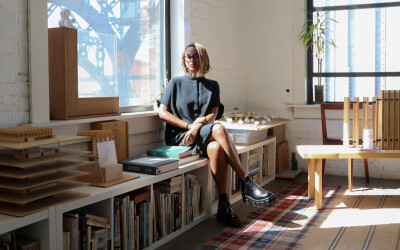Immunologist Kizzmekia Corbett helped to design the Moderna vaccine. Now she volunteers her time talking about vaccine science with people of color.
Even before Corbett took on one of the most challenging tasks of her professional career, she was a force to be reckoned with. As a student,she was selected to participate in Project SEED, a program for gifted minority students that allowed her to study chemistry in labs at the University of North Carolina at Chapel Hill and eventually landed a full ride to the University of Maryland Baltimore County, according to The Washington Post.
After graduating, Corbett enrolled in a doctorate program at UNC-Chapel Hill, where she worked as a research assistant studying virus infections and eventually received a PhD in microbiology and immunology.
Her work with such pathogens began when she joined the NIH’s Vaccine Research Center as a postdoctoral fellow in 2014.
Corbett is taking on another challenge: tempering vaccine hesitancy by talking about COVID-19 science in communities of color.
Corbett is one of many Black scientists and doctors who are doing this outreach, often virtually, in their free time. Researchers say it’s necessary to make scientific knowledge accessible in public forums, to ease health disparities.
In the United States, COVID-19 has affected Black, Native American and Latino American people at higher rates than white people, for reasons rooted in racism and historical segregation. At the same time, people in these groups are more wary of COVID-19 vaccines. In a December survey by the US Centers for Disease Control and Prevention, 46% of Black adults said they probably would not get vaccinated against the coronavirus SARS-CoV-2, compared with 30% of white respondents. Those who were hesitant cited worries about side effects, and the speed at which the vaccines were developed. A legacy of exploitative medical research, such as infamous syphilis studies in Tuskegee, Alabama — in which doctors withheld treatment from hundreds of Black men from the 1930s and 1970s — contributes to this scepticism.



